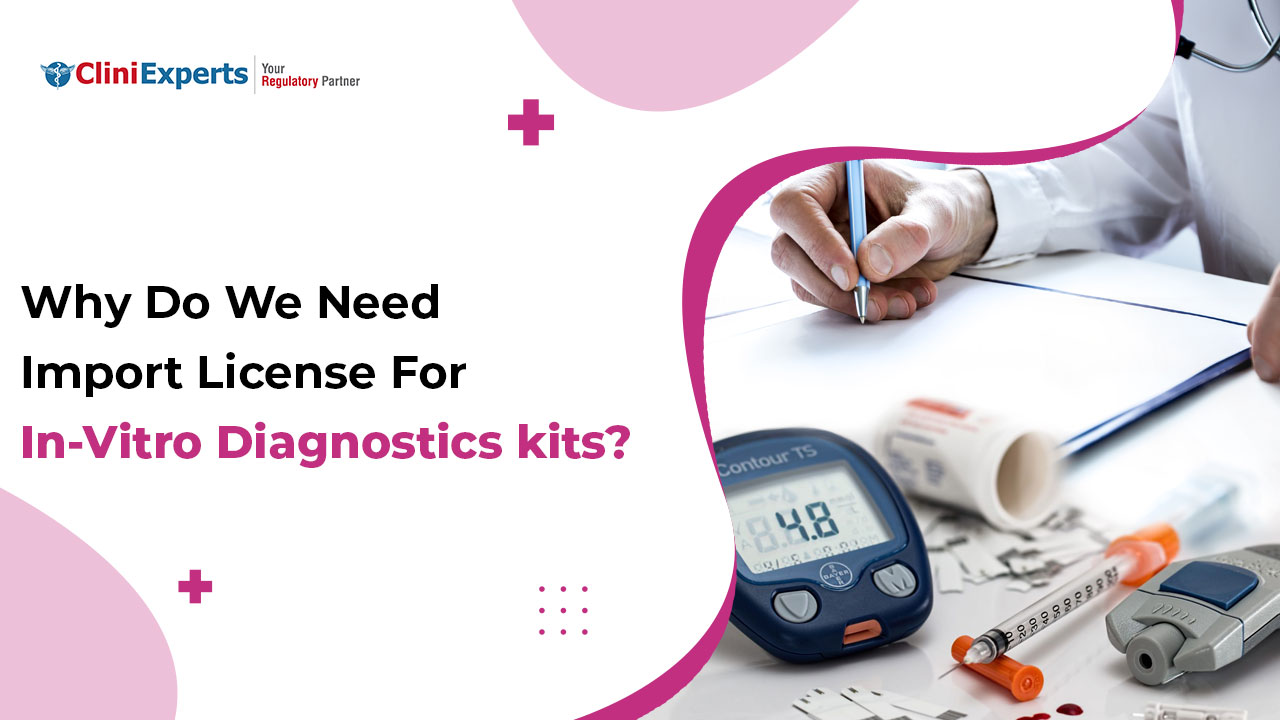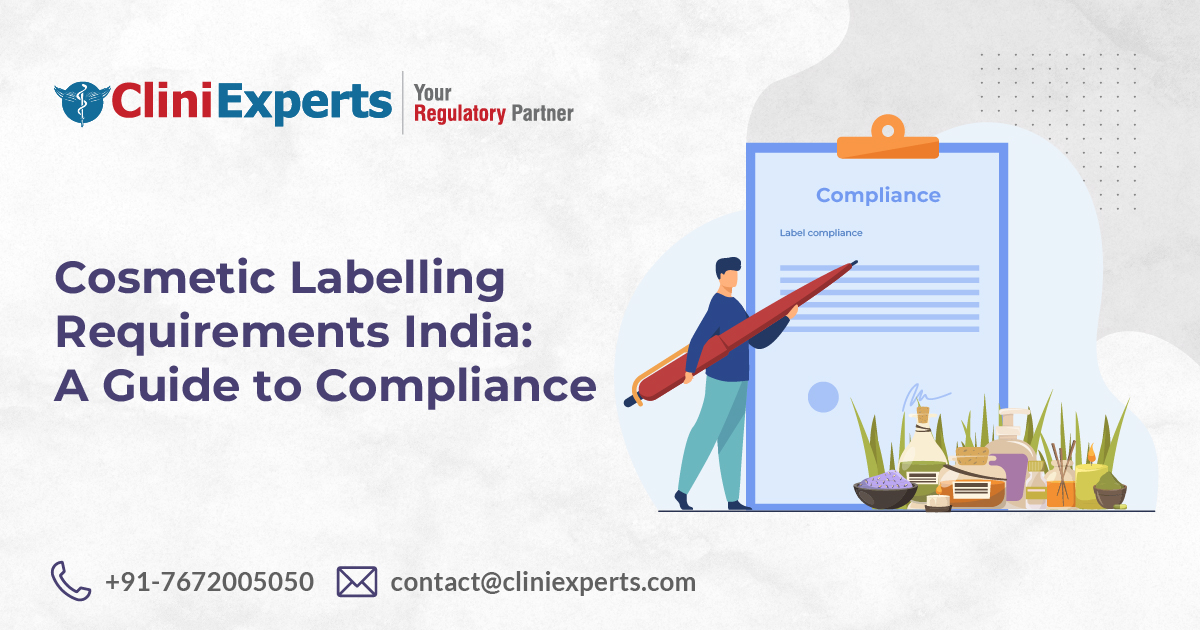Why Do You Need In-Vitro Diagnostic Kits (IVD) Import License?

The medical devices market is growing at a fast pace along with the drug market despite all the challenges created by insufficient quality standards and other inconveniences. In India, medical devices are imported, manufactured, distributed, and sold under the Drug and Cosmetics Act 1940 and the Medical Devices Rules, 2017. In this article, we are going too discuss about “what is in-vitro diagnostic kits” and “benefits of in-vitro diagnostic kits (ivd) import license”.
What Are In-Vitro Diagnostic (IVD) Kits?
An in-vitro diagnostics kit is a device that consists of reagents or articles which are:
(i) from the same license holder
(ii) intended to be used in combination to complete a specific intended purpose
(iii) sold under a single proprietary Test Kit name and
(iv) compatible when used as a Test Kit
In-vitro Diagnostic reagents and kits are governed by Medical Devices Rules, 2017 under subclause (i) of clause (b) of section 3 of the Drugs and Cosmetics Act, 1940.Drugs Controller General of India (DCGI) is the regulatory authority that regulates the import of IVD kits/reagents in India under the Central Drugs Standard Control Organization (CDSCO).
IVD’s medical devices are classified based on the risk involved by the Global Harmonization
Task Force, as shown in the table 1
| CLASS RISK LEVEL | DEVICE EXAMPLE | |
| A | Low individual, Risk and low public health risk | Clinical chemistry analyzer, prepared selective culture media |
| B | Moderate individual risk and low public health risk | Vit B12, Pregnancy self-testing, anti-nuclear antibody, urine test strips |
| C | High individual risk and moderate public health risk | Blood glucose self-testing, HLA typing, PSA screening, rubella |
| D | High individual risk and high public health risk | HIV blood donor screening , HIV blood diagnostic |
Need to import licenses for In-Vitro Diagnostics kits
- Fifth schedule and Chapter V of MDR 2017 provide details about the management of quality systems or in vitro diagnostic products, as well as requirements for reagents, equipment, and plants required for ensuring the safety and reliability of diagnostic products.
- The import license documentation supports and intends to prevent the risks associated with medical device design, manufacture, and packaging.
- Form MD-17 permits the importation of any in vitro diagnostic medical device for clinical investigations, tests, evaluations, demonstrations, and training.
- The Central Licensing Authority evaluates the requisite documents and reports/documents provided by an applicant and ensures the safety of the patient before issuing the import license.
- IVD kits/reagents that are in possession of valid import licenses may be imported from any notified port of India.
- Under a valid import license, IVD kits can be stocked anywhere in the world other than where the import license specifies
According to the Drugs & Cosmetic Act & Rules, IVD kits/reagents for import are categorized as notified or non-notified and needs to be registered with the Indian Drug Regulatory Authority (i.e., the Central Drugs Standards Control Organization).
Important licenses and forms required to import/manufacture IVD
| For the import of Notified IVD kits/reagents | Form MD 15 |
| For the import of Non Notified IVD kits/reagents | Registration Number |
In accordance with the Medical Device Rules, 2017, application for a grant for clinical performance evaluation of a new IVD kit is filed in form 24, and the approval for the assessment is granted in form 25.
In order to obtain approval to conduct clinical performance evaluations for new in vitro diagnostic medical devices, the sponsor should submit Form MD-24 with the appropriate fee, along with the necessary information to the Central Licensing Authority. The CLA grants permission for clinical performance evaluation of a new in vitro diagnostic medical device in Form MD-25.
Applications for granting permission to import or manufacture new In Vitro diagnostic medical devices can be made to the Central Licensing Authority in Form MD-28 by the manufacturer himself or by an authorized agent in case of importation, and the permission grant is obtained in Form MD-29 to import or manufacture new In Vitro diagnostic medical devices.
Timeline:
If the application is complete in all respects and information are in order, the licensing authority
issues an import license in Form MD 15 within six to nine months from the date of receipt of an
application.
Summary:
In India, the CDSCO reviews IVD kits/reagents for importation. The import license of IVD kits ensures the safety and efficacy of patients and prevent the risks associated with the design, manufacture, and packaging of medical devices. The import license for notified and non-notified In-Vitro Diagnostics kits is obtained in Form MD 15.
The medical devices market is growing at a fast pace along with the drug market despite all the challenges created by insufficient quality standards and other inconveniences. In India, medical devices are imported, manufactured, distributed, and sold under the Drug and Cosmetics Act 1940 and the Medical Devices Rules, 2017.
References:
- https://cliniexperts.com/india-regulatory-services/diagnostic-kit/for-importers/
- https://www.emergobyul.com/sites/default/files/india-medical-devices-rules-2017.pdf
- https://www.jbclinpharm.org/articles/current-regulatory-challenges-and-approaches-inregistering-in-vitro-diagnostics-ivds-in-india-3688.html
- https://cdsco.gov.in/opencms/export/sites/CDSCO_WEB/Pdfdocuments/IVD/FAQs/Final-FAQS-IVDnew3.pdf
- https://cdsco.gov.in/opencms/export/sites/CDSCO_WEB/Pdf-documents/medicaldevice/Guidelines_Grouping_of_MDandIVD.pdf
Recent Posts
Organic Food Labelling In India| Certification, and Import of Organic Food in India

This Article is All About Organic Food Labelling In India and Certification, and Import of Organic Food in India. Explained in Detail About What is Organic Food labelling? Summary Short Description Wi..
Cosmetic Label Compliance India : A Guide to Compliance

Introduction Looking for Cosmetic Label Compliance India? Are you a cosmetic manufacturer or importer navigating the complex world of Indian regulations? Ensuring your product labels comply with the l..
Clinical Investigation Approvals: An Overview of Forms MD-22 and MD-23

Summary Short Description Strict regulatory protocols govern clinical investigations for medical devices. Central to this process are forms MD-22 and MD-23. Form MD-22 is an application to Central Lic..
HAVE A QUERY?
REACH US!Office
New Delhi
Unit No. 324 & 325, City Centre Mall, Plot No. 5, Sector 12, Dwarka, India - 110075
+917672005050
Bengaluru
RMZ Galleria, 1st floor, Ambedkar Colony, Yelahanka, Bengaluru, Karnataka, India – 560064
Call us on
Sales: +91 7672005050
Reception: +91-11-45214546
Timings
9 am to 6 pm (Monday to Friday)


